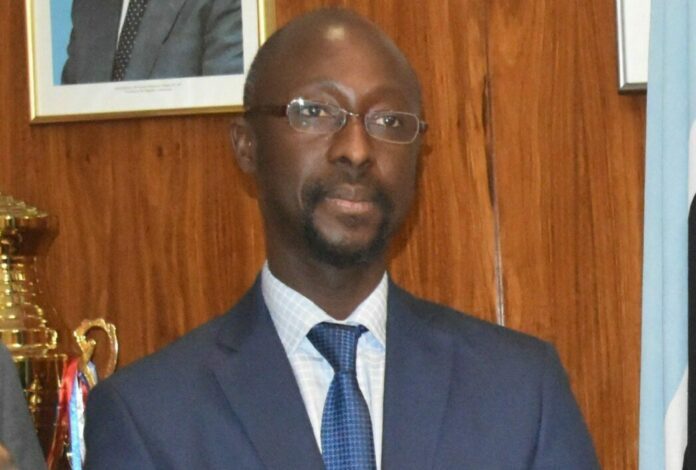South Africa’s economic and social challenges are a cause for concern, with mounting unmatched energy crisis, macro-financial instability, lack of jobs and a stalling transition to a greener economy taking a heavy toll.
During the recent visit to the country by an International Monetary Fund (IMF) team led by Papa N’Diaye from 1-17 March, where the crew held meetings with the economic authorities and other stakeholders from the public and private sectors for the 2023 Article IV annual consultation, the IMF painted a grim picture and stated that South Africans should be ready for tough economic times ahead.
This week the IMF stated that South Africa’s economic and social challenges were mounting, risking stagnation amid an unprecedented energy crisis, increasingly binding infrastructure and logistics bottlenecks, a less favorable external environment, and climate shocks.
“A recovery in the services sector supported job creation in 2022, however, employment remains below pre-pandemic levels and unemployment close to record highs, on the back of already high poverty and inequality. In addition, the economy remains exposed to external shocks and capital flow volatility, in the context of tighter global financial conditions, and volatile commodity prices related to Russia’s war in Ukraine. The elevated public debt significantly limits the fiscal space available to respond to economic and climate shocks and meet social and developmental needs. Long-standing rigidities in product and labour markets, and governance and corruption vulnerabilities also weigh on growth and employment prospects, threatening social cohesion,” said IMF.
The IMF said that the country’s large external asset position, low levels of foreign currency debt, diversified economy, sophisticated financial system, and flexible exchange rate regime are sources of strength, supported by the South African Reserve Bank’s (SARB) through its pro-active monetary policy that has kept inflation expectations anchored.
“These features provide a favorable base for growth, as fiscal and structural challenges continue to be tackled, including through Operation Vulindlela. On the policy front, the government has made important headway on domestic revenue mobilisation, removed licensing requirements for embedded power generation, announced a plan to create a mechanism for private sector participation in transmission infrastructure, completed the spectrum auction, and has taken steps to improve third-party access to the country’s ports and freight network.
“Anti-corruption measures in response to the judicial recommendations of the Commission of Inquiry into allegations of State Capture have also been announced in October 2022. This progress is welcome and needs to be sustained, but further reforms are urgently needed to durably lift potential growth, create enough jobs to reduce unemployment, absorb new entrants into the labour force, and reduce poverty and inequality,” said the IMF.
However, the organisation stated that the near-term growth outlook had deteriorated as the real GDP growth was projected to slow down sharply to 0.1% in 2023 mainly due to a significant increase in the intensity of power cuts, as well as the weaker commodity prices and external environment.
“In the medium term, growth is expected to rebound, though only to about 1,5% per year, with income per capita likely to stagnate as a result. This is because of long-standing structural impediments, such as product and labour market rigidities and human capital constraints, offsetting expected improvements in energy supply, higher private spending on energy-related infrastructure, and a more supportive external environment. Headline inflation is projected to fall back within the SARB target range of 3% to 6% in the second half of 2023. Lower food and fuel price inflation and the SARB’s less accommodative monetary policy stance are key factors behind this decline. Inflation is expected to reach the target range mid-point of 4.5% in 2024 and remain there through the medium term,’ said the IMF.
Based on the challenges that the country is faced with, the current account is projected to move to a substantial deficit of 2.3% of GDP in 2023 and to deteriorate further to about 2,5% in 2024, on the back of softer commodity prices, weaker external demand, and higher energy-related capital imports.
The IMF said that as these factors disintegrated and logistical constraints were alleviated, the deficit was expected to improve somewhat to about 2% of GDP over the medium term.
“Despite recent improvements, fiscal accounts will remain under pressure with the overall balance projected to widen to a deficit of about -6.5% of GDP in the fiscal year (FY) 23/24, and deteriorate further through FY25/26, reflecting the Eskom debt relief operation, which entails a capital transfer, continued transfers to other loss-making state-owned enterprises, spending on the Social Relief Distress grants, and increased interest payments. The deficit is expected to narrow after FY26/27 assuming improved conditions at Eskom, though public debt would continue to rise,” said the IMF.
The Financial Action Task Force (FATF) has placed South Africa on its list of jurisdictions under increased monitoring with strategic deficiencies in its anti-money laundering and counter-financing of terrorism (AML/CFT) framework.
“FATF has recognised that South Africa has made significant progress on many of the recommended actions to improve its systems, including the passage of two key Acts of Parliament addressing technical compliance deficiencies, demonstrating the authorities’ strong political commitment. Exiting the greylist will require South Africa to continue to implement the agreed FATF implementation action plan in a timely manner. International experience suggests that the adverse impacts of greylisting increase the longer a country remains on the list. Therefore, the mission encourages stakeholders to continue working together to exit the list as quickly as possible, and closely monitor the impact of the greylisting on capital flows and the financial system,” said the IMF.
Follow @SundayWorldZA on Twitter and @sundayworldza on Instagram, or like our Facebook Page, Sunday World, by clicking here for the latest breaking news in South Africa.



